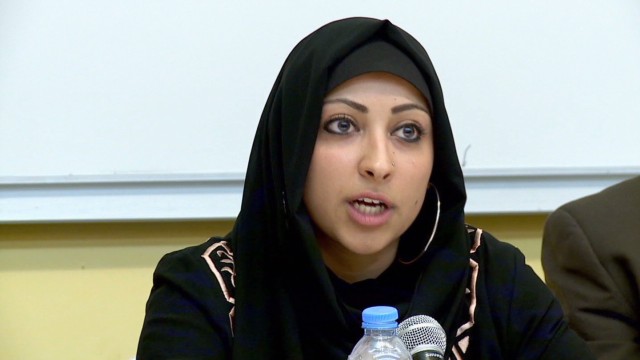Story highlights
- Opposition suspending participation in national dialogue, party official says
- Bahrain's Public Prosecution Office says Khalil Al Marzooq is affiliated with a terrorist group
- Activists say charges are politically motivated, country's leaders want to stifle dissent
- Al Marzooq was arrested after being interrogated about a speech he delivered last week
A leading opposition figure in Bahrain has been jailed after being charged with "inciting and advocating terrorism," Bahrain's Public Prosecution Office said. Activists in the tiny Persian Gulf kingdom, however, insist the charges against Khalil Al Marzooq are politically motivated and accuse the country's leadership of attempting to stifle dissent.
Al Marzooq, secretary general of Al-Wefaq, the main Shia opposition party, was arrested Tuesday after being interrogated about a speech he delivered last week. According to BNA, Bahrain's official news agency, he was summoned to a police station, questioned and then referred to the Public Prosecution Office.
In a statement, the office accused Al Marzooq of being "affiliated with the terrorist organization" and added that he had been "speaking at many forums, inciting and promoting terrorist acts, advocating principles which incite such acts, supporting violence committed by the terrorist coalition, and legally justifying criminal activities."
Taher Al-Mosawi, the head of Al-Wefaq's media center, says that Al Marzooq did not incite violence and that Bahrain opposition parties are suspending participation in national dialogue.
Al-Wefaq called the government's actions in regard to Al Marzooq "reckless" and "a clear targeting of political action in Bahrain." The party added in a statement that it believes his detention is, in part, a reaction to a European Parliament resolution passed last week regarding the human rights situation in Bahrain.
That resolution called for "the respect of human rights and fundamental freedoms in Bahrain" and urged Bahraini authorities "to immediately end all acts of repression, release all prisoners of conscience, and respect the rights of juveniles."
European Parliament member Marietje Schaake told CNN that "the lack of progress in terms of dialogue and reforms towards the rule of law and respect for human rights in Bahrain continue to be of great concern to the European Parliament."
Schaake spearheaded the effort to get the resolution passed. "For the sake of the well-being of all people in Bahrain," she said, "and for the future of the country, the crackdown on peaceful demonstrations must end. The blanket ban on assembly in Manama is not helping reconciliation, either."
Bahraini opposition activists say that Al Marzooq's arrest is just the latest in a country where many prominent dissidents have been jailed in the past two years and that it only underscores how tense the situation remains in Bahrain.
In February 2011, at the height of the Arab Spring, Bahraini citizens, spurred by successful uprisings in Tunisia and Egypt, demanded democratic reforms and other changes in the way the country was run.
Anger from the majority Shiite population was directed at the ruling Sunni minority.
But Bahrain's uprising failed to gain the traction of other regional revolutions after a crackdown by authorities in the tiny island state, backed by troops from nearby Saudi Arabia and the United Arab Emirates.
Demonstrators say authorities killed dozens of people and arrested, tortured and imprisoned hundreds of others. Opposition leaders have tried to keep the protest movement alive.






